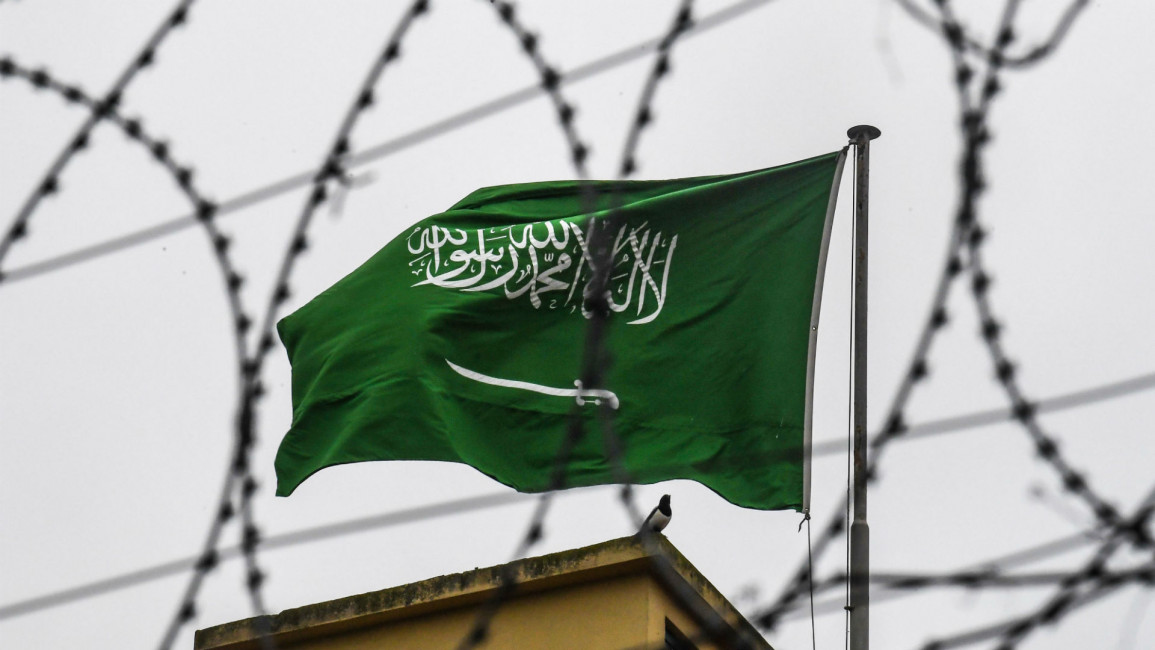Riyadh 'could cozy-up to Iran' if US imposes sanctions over Khashoggi affair
Saudi Arabia could potentially take more than 30 measures if the US administration imposes any sanctions on the kingdom, including cozying up to US-rival Iran, according to a senior Saudi media executive.
The kingdom’s response to US sanctions could spell disaster for the US-Saudi relations, Turki Al-Dakhil, head of Al-Arabiya TV, claimed in an article penned amid an ongoing scandal surrounding the fate of a missing Saudi journalist.
US Sanctions on Saudi Arabia could shake the world economy, especially if the pumping of oil stops, Al-Dakhil said, noting such a scenario could force much of the Muslim world, including Riyadh, to cozy up to Iran.
"If the price of $80 has angered President Trump, no one will rule out that the price could jump to one hundred and two hundred dollars, maybe double that figure, and perhaps the pricing currency for a barrel of oil is the Chinese currency, the yuan instead of the dollar, and oil is the most important Commodity trading in dollars today,” he warned.
“This will all direct the Middle East and Muslim world into the arms of Iran, which will be closer to Riyadh than Washington,” he said.
The senior adviser went on to detail how new relations could form amid the breakdown of US-Saudi partnerships, noting Riyadh could be forced to form military alliances with Russia, in turn bringing it closer to Iran, as well as Hamas and Lebanon’s Hizballah movements - both of which have been branded as terror organisations by the US.
"Close cooperation in information between Riyadh, America and the West will become a thing of the past,” he said, suggesting Hamas and Hizballah “could turn from foe to friend”, leading to the gradual reconciliation with Iran.
The article was published on the Saudi-funded Al-Arabiya after US President Donald Trump threatened Saudi Arabia with "severe punishment" if found responsible for harming Khashoggi.
Ironically, it was Qatar's alleged warm relations with Iran, Hizballah and support for Hamas that Riyadh has cited to justify its ongoing blockade of its small Gulf neighbour, and critics were quick to point out the fickle thinking of the Saudi establishment reflected by Al-Dakhil.
Khashoggi, a critic of Crown Prince Mohammed bin Salman who is the kingdom's de facto ruler, vanished on October 2 after entering the Saudi consulate in Istanbul.
Turkish police say Khashoggi, who had been in self-imposed exile in the United States, was murdered inside the consulate by a 15-member Saudi team flown into the country, according to Turkish government sources.
But Saudi Arabia in return threatened a strong response to possible sanctions, in a statement carried by state news agency SPA on Sunday, citing an official source.
"The kingdom affirms that if it receives any action, it will respond with greater action," the statement said.
"The kingdom also affirms its total rejection of any threats or attempts to undermine it whether through threats to impose economic sanctions or the use of political pressure,"
The statement also condemned "false accusations aimed at undermining" the country, without directly acknowledging Khashoggi's disappearance.
Jamal Khashoggi is one of the Arab world's best-known journalists, having fled Saudi Arabia following Mohammed bin Salman's clampdown on perceived critics.
He moved to the US and has been a contributor to The Washington Post.
Follow us on Twitter: @The_NewArab



